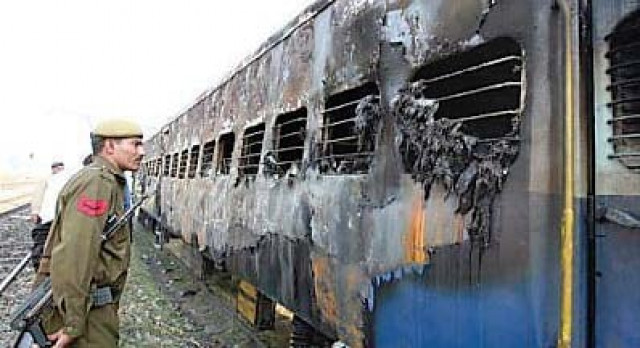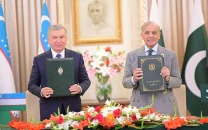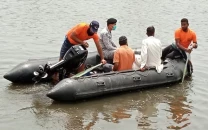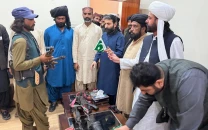Samjhota train blast: New Delhi not ready to share probe findings
As investigation drags on, rewards announced for information about more suspects.

The refusal – which was conveyed in a home ministry communique to the external affairs ministry – comes a day after Pakistan asked India to provide it with an update on the investigations into the February 2007 bombing on the India-Pakistan peace train in Panipat that killed some 68 people, mostly Pakistanis returning home.
“At this stage we cannot share the probe details as it is too premature. The investigation is still on and is at a preliminary stage. We will take an appropriate decision when the investigations are concluded,” a home ministry official told reporters.
The probe into the blast on the Samjhota Express inched forward but was nowhere near closure as the National Investigation Agency (NIA) announced cash rewards for information on three suspects.
The custodial ‘confession’ of Swami Aseemanand, a former Rashtriya Swayamsevak Sangh (RSS) pracharak involves two individuals, Ramachandra Kalsangra and Sandeep Dange who are accused in the Ajmer mosque blast case.
This seems to indicate that the Indian government is sincere in moving ahead on cases involving Hindu vigilante groups who have been acting in a concerted manner mostly from central India (Madhya Pradesh). If that is indeed the case then, ahead of the meeting between the foreign secretaries of India and Pakistan in Thimphu, India could have something concrete to offer.
A third man, Ashok, also known as Prince, now has a cash reward against his head.
Aseemanand’s confessions are now the main weapon with the Central Bureau of Investigation (CBI )and NIA. Versions of the confession which have appeared in Indian print media suggest that the circle of ‘Hindu’ terror ring does not exceed 20 people and some of these – including Pragya Thakur, Col Shreekant Purohit and others – have already been rounded up and are in prison. The RSS has distanced itself from the activities of these individuals.
The clincher is Aseemanand’s confession. According to his confession which has been published by news magazine Tehelka, it was the massacre of Hindu devotees at Akshardham temple by suicide bombers in 2002 that set him thinking about retaliation.
“Muslim terrorists started attacking Hindu temples in 2002,” Aseemanand said. “This caused great anger to me.” An attack on a temple in Varanasi, one of India’s most holy towns, in March 2006 was the flash point, his confession says.
The planning for retaliation started in 2003. Three years later, a plan was hatched to systematically hit mosques, and finally the Samjhota Express.
The interesting thing is, one of the key accused in the Samjhota Express blast, Sunil Joshi was killed in mysterious circumstances in 2007. The allegation is he was killed by his own comrades.
The RSS continues to deny any connection to the conspiracy and disowns Aseemanand, decrying his ‘confession’ which it says was obtained through coercion.
Published in The Express Tribune, January 12th, 2011.



















COMMENTS
Comments are moderated and generally will be posted if they are on-topic and not abusive.
For more information, please see our Comments FAQ